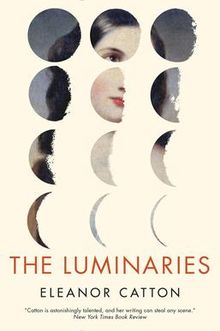
10. Not sufficient on its own for me to veto a novel, but it does need to sparkle in other ways if I’m to tolerate an elaborate and unnecessary framework for the narrator to tell their story. I know it’s fiction, I know there’s an author behind it, so don’t waste my time pretending it was written on scraps of toilet paper and smuggled out of prison. Epistolary novels I can just about handle, but please let’s get on with the story!
9. I appreciate learning about other cultures, patterns of work or periods of history, but I don’t want a lecture. I don’t want a novel that’s overly heavy on research.
8. As I’m more interested in character, I don’t need my reading to be heavy on plot. In fact, I get lost if the plot is too complex, so I’m not into thrillers and crime.
7. On the other hand, while I tend to prefer literary fiction, I do like some forward movement. Too much description, however eloquent, slows the story down, leading to …
6. Valuing my time, I’m more likely to take a risk with a shorter novel than a long one. If the Rough Writers and friends can tell a story in exactly 99-words, then 1000 times that number should be enough for anyone. Although it varies according to the size of print, that translates to around 300 pages. (Sugar and Snails is 330 pages and was edited down to only 85,000 words.) So a novel that’s overly long is a turnoff for me.
5. While I’m fascinated by religion in an anthropological sense, I’m somewhat averse to the spiritual and supernatural as an overriding theme. So no to Marilynne Robinson, despite her plethora of awards, although I did enjoy The Time Traveler’s Wife because I interpreted the zany time-travelling as a metaphor for how our minds, like computers, can revert to earlier settings.
4. While I believe there’s room for a touch of humour in almost any topic, I don’t like comedic takes on tragic situations unless, like The First Bad Man, it’s really dark and over the top. Apparent denial of desperation and devastation can really freak me out.
3. Yet, much as I’m drawn to the dark side, I don’t want my reading to be totally bleak. There are ways of writing about trauma that allow for a sliver of light.
2. I look for emotional breadth and depth in my reading, but I hate emotional manipulation when the author tries to dictate what I should feel. I’ll make up my own mind, thank you.
1. Although I still don’t fully understand what post-modernism means, I’ve now learnt to be wary of anything described as post-modern, which seems to be an extreme version of the self-consciousness of form addressed in my point 10. I want a novel to be just that: a novel, not a collection of essays, emails, newspaper cuttings and the like.
So I’ve had my gripe, what would make you abandon a novel?





















 RSS Feed
RSS Feed





















